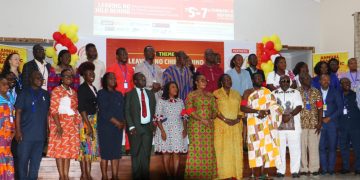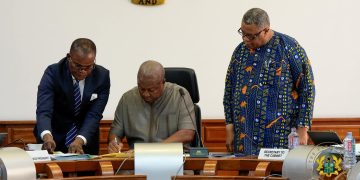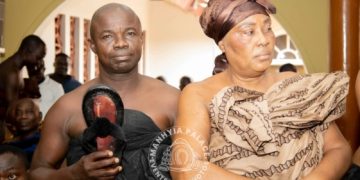Asanteman came together in a grand thanksgiving service to mark the eighth anniversary of the enstoolment of the revered Queen of the Asante Kingdom, Her Majesty Nana Konadu Yiadom III.
The event, held on Thursday, February 6, 2025, at the Manhyia Palace, was attended by the Asantehene, Otumfuo Osei Tutu II, who, by tradition, is considered the Queen Mother’s son. Also present was the Asantehene’s wife, Her Ladyship Julia Osei Tutu.

The Enstoolment Day of the Queen, which has been designated as Asante Queen’s Day, saw the gathering of prominent female traditional rulers across the Ashanti Kingdom. Among them were; Nana Yaa Asantewaa II, Ejisuhemaa Nana Nyarko Aboraa Sika III, Manso Nkwanta hemaaNana Adwoa Afranewaa III, Offinsohemaa Nana Agyeiwaa Paamu, Tepahemaa Nana Darkowaa Ampem Kyerewaa II, Yam fohemaa Nana Yaa Mmua Brayie II, Kenyase Number 1 Hemaa Nana Acheamponmaa Ntansa Yiadom II, Agonahemaa Nana Konama Danpon III, Mpasaasohemaa and Nana Adwoa Po Dwamena, Bechemhemaa.
The Kumasi Evangel Choir provided an uplifting atmosphere with a selection of soul-stirring hymns.
Delivering the sermon, Rt Rev Prof Sarfo Kantanka, former Kumasi Bishop of the Methodist Church, Ghana, underscored the significance of women’s empowerment by drawing inspiration from five biblical women who played pivotal roles in the genealogy of Jesus Christ—Tamar, Ruth, Rahab, Bathsheba, and Mary, the mother of Jesus.
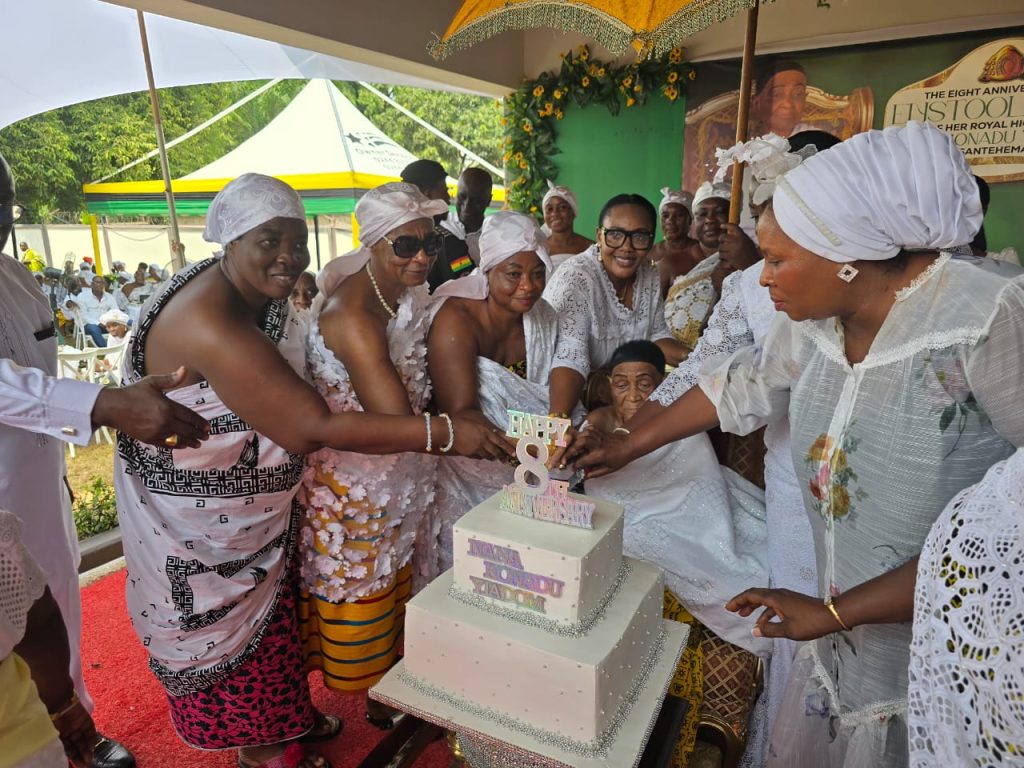
He highlighted their resilience and virtues; Tamar, Bathsheba, and Mary—boldness and wisdom, Ruth—selflessness and hard work, Rahab foresight and courage
He stressed that these women, despite facing societal challenges, defied the odds and earned divine recognition and success.
“Some women have accepted their situations, and society is suffering as a result. Society suffers more when women fail,” he stated.
The clergyman called on Asantehemaa and Lady Julia to continue championing the cause of women’s empowerment, urging traditional leaders to support initiatives that uplift women in Asanteman.
“It is time for our women leaders—our ‘Tamars’—to rise and change the narrative,” he added.
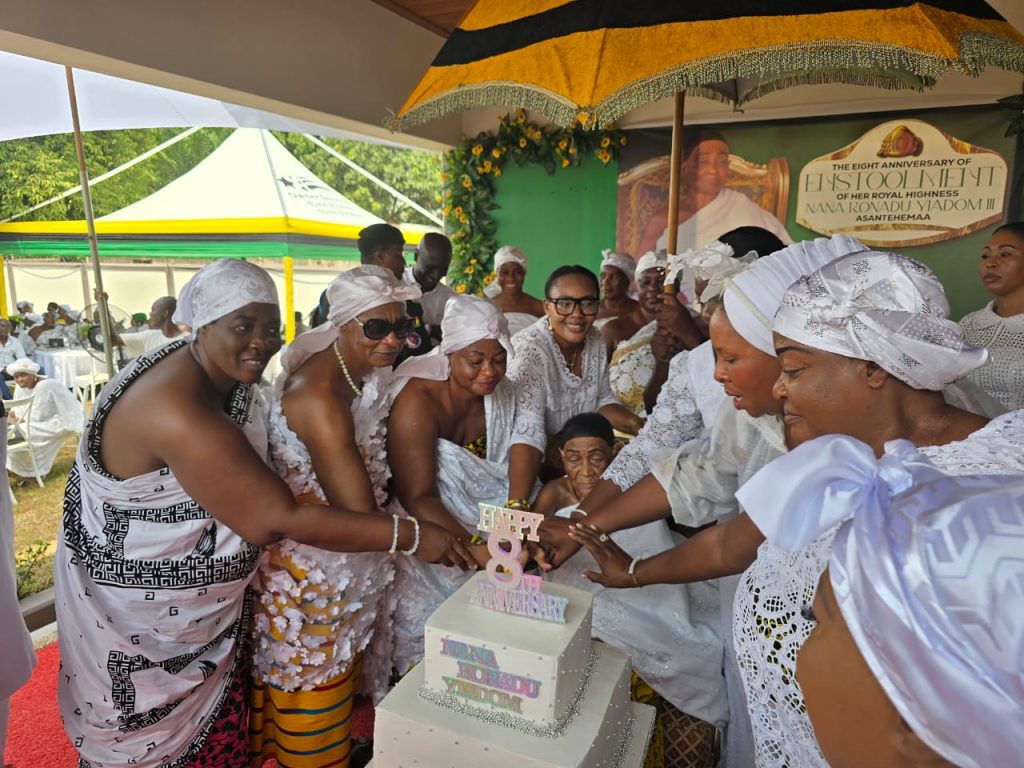
The Legacy of Nana Konadu Yiadom III
Born in 1927 in Benyaade, a town in Kwadaso, Ashanti Region, Nana Konadu Yiadom III is the eldest of five children of the late Nana Afia Kobi Serwaa Ampem II, the 13th Asantehemaa.
Before her enstoolment, historical records by Professor Osei Bonsu Safo-Kantanka indicate that the Queen Mother was actively engaged in catering, farming, and petty trading. Despite not receiving formal education, she acquired an informal education that is regarded as being on par with conventional academic training.
Known for her love of cooking, music, and dance, Nana Konadu Yiadom III continues to play a pivotal role in upholding the traditions and values of the Asante Kingdom, inspiring generations of women in leadership.
The thanksgiving service not only celebrated the Queen Mother’s eight-year reign but also reinforced the importance of female leadership within Asante society. As Asanteman reflects on her impactful reign, the call for women’s empowerment and societal transformation remains at the heart of her legacy.
Source: www.kumasimail.com








